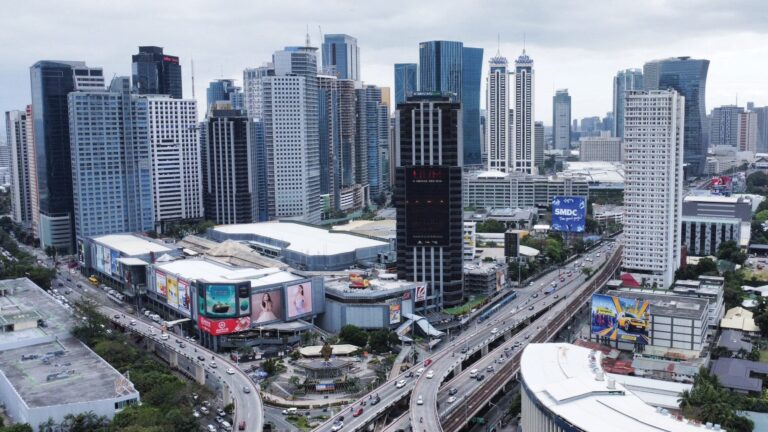The K to 12 Program, launched in 2013 through Republic Act (RA) No. 10533, or the Enhanced Basic Education Act, marked a significant transformation in the Philippine education system.Created to align the nation’s educational system with global standards, the K to 12 Program introduced one year of Universal Kindergarten and extended high school by two additional years.Eleven …
The K to 12 Program, launched in 2013 through Republic Act (RA) No. 10533, or the Enhanced Basic Education Act, marked a significant transformation in the Philippine education system.
Created to align the nation’s educational system with global standards, the K to 12 Program introduced one year of Universal Kindergarten and extended high school by two additional years.
Eleven years since its launch, the initiative designed to enhance Filipino students’ skills and knowledge for higher education, employment, and entrepreneurship continues to transform the country’s educational landscape.
K to 12 Program in a nutshell
The K to 12 Program is a major education reform that extended the country’s basic education from a previously 10-year cycle to 13 years.
According to the Department of Education (DepEd), one of the key features of the program is strengthening early childhood education through Universal Kindergarten, which provides every Filipino child with access to early education at the age of five.
The K to 12 Program also aims to make the curriculum relevant to learners through contextualization and enhancements, build proficiency with Mother Tongue-Based Multilingual Education, ensure integrated and seamless learning through spiral progression, prepare students for the future, and nurture holistically developed Filipinos equipped for college, employment, and 21st-century skills.
The K to 12 Basic Education Curriculum features Elementary (Kindergarten to Grade 6), Junior High School (Grades 7 to 10), and Senior High School (Grades 11 to 12).
SHS, the two additional years in basic education, is considered the “centerpiece” of the K to 12 Program. It offers four tracks: Academic, Technical-Vocational-Livelihood (TVL), Sports, and Arts and Design.
Under the Academic Track, five strands are offered: Accountancy, Business and Management (ABM), Humanities and Social Sciences (HUMSS), Science, Technology, Engineering, and Mathematics (STEM), General Academic, and Pre-Baccalaureate Maritime.
Under TVL, strands such as Agri-Fishery, Home Economics, Information and Communication Technology (ICT), Industrial Arts, and TVL Maritime are offered.
The K to 12 Program also encompasses non-formal education through the Alternative Learning System (ALS).
Breakthrough in basic education
The K to 12 Basic Education Program was passed by Congress on Jan. 30, 2013. It was approved by the late President Benigno Simeon Aquino III on May 15 of the same year.
As a major reform, former DepEd Secretary Armin Luistro then described the program as a “breakthrough in basic education.”
“We are very, very happy with this development because it will really ensure the implementation of the education reform we have been pushing for,” Luistro said when the K to 12 law was passed in 2013. “This is a much-anticipated milestone for the youth and for the entire Filipino nation.”
For the advocacy group Philippine Business for Education (PBEd), one of the primary supporters of the initiative, the K to 12 Program is considered the “most significant” education reform in the Philippines.
Support and opposition
Undoubtedly, the K to 12 Program has significantly transformed and reshaped the landscape of education in the Philippines.
Even a decade after its implementation, however, the K to 12 Program continues to elicit mixed reactions from various sectors due to the significant changes it has introduced.
Groups, parents, teachers, and learners have been vocal about their concerns regarding the program—primarily about the government’s readiness to implement the new system.
Critics contend that the implementation of the K to 12 Program has imposed an “extra burden” regarding resource allocation.
The Alliance of Concerned Teachers (ACT) Philippines, for instance, has been calling for an “overhaul” of the K to 12 curriculum toward an “education that molds Filipino citizens with strong patriotic ideals, trained in scientific study, capable of critical and creative thinking, and possessing a deep sense of service to the people.”
Despite the criticisms, the K to 12 Program continues to garner support, especially from organizations like PBEd, which advocated for its implementation.
PBEd argued that this new educational system provides valuable opportunities for Filipino students and contributes positively to the national economy.
According to the DepEd, one of the key features of the K to 12 Program is strengthening early childhood education through Universal Kindergarten, which provides every Filipino child with access to early education at the age of five.
SHS: More than just an ‘additional 2 years’
Contrary to popular belief, PBEd emphasized that the K to 12 system is “more than simply adding two additional years” to high school.
For PBEd, a 13-year education cycle will better equip Filipino students for higher education, prepare them for the workforce, and instill the skills necessary for graduates to compete in the global job market.
“The government believes that the K to 12 curriculum in the Philippines will put Filipino students on par with the rest of the world,” PBEd said. “Truly, investing in education is key to achieving national growth and development.”
While continuing to support the K to 12 Program, PBEd also recognized the “urgent need” for transformative change in the country’s education system.
In its 2023 State of Education Report, PBEd noted that, aside from equitable access to quality education, one of the most pressing issues in the K to 12 Program is that the college teacher education curriculum is “non-responsive to what’s needed in the K to 12 curriculum and in day-to-day classroom management.”
Challenges in the SHS Program
Former Senator Sonny Angara, who was appointed as DepEd Secretary in July 2024, shared that the SHS Task Force Report 2024 outlined various challenges in the implementation of SHS.
These challenges include the misalignment of the K to 12 Program with the four curriculum exits, overlapping topics in the subject offerings, a shortage and lack of career progression opportunities for SHS teachers, a significant shortage of SHS classrooms, and inadequate textbooks, equipment, and facilities.
DepEd also stressed the need for improved coordination and collaboration among government agencies, such as the Commission on Higher Education (CHED) and the Technical Education and Skills Development Authority (TESDA).
To address these challenges, including SHS employability, Angara said DepEd is collaborating with TESDA on SHS Technical-Vocational-Livelihood (TVL) assessment and certification for learners and teacher-assessors, as well as with TESDA, CHED, and the Department of Labor and Employment (DOLE) on SHS Technical-Vocational Education and Training (TVET) Embedment.
DepEd, he added, continues to partner with various stakeholders to tackle the challenges in SHS.
Angara also pointed out that, regarding the streamlined SHS curriculum, DepEd is “holding rounds of consultation to improve the draft based on evidence and the results of a series of workshops with various stakeholders, desk reviews, and international benchmarking on SHS models and structures.”
The MATATAG Curriculum
One of the latest developments in the K to 12 Program is the implementation of the revised curriculum for Kindergarten to Grade 10, also called the MATATAG Curriculum.
Launched during the term of Vice President and former Education Secretary Sara Duterte in August 2023, the MATATAG Curriculum was designed to “avert further learning losses” among learners.
DepEd noted that one of the issues with the existing K to 10 curriculum under the K to 12 Program was that it was “overloaded” with too many lessons and subjects.
The new K to 10 curriculum aims to emphasize the development of foundational skills, such as literacy, numeracy, and socio-emotional skills, by reducing the number of subjects in early grade levels.
The pilot implementation of the MATATAG Curriculum started in 2023, and its full implementation, which will be done in phases, began in the school year (SY) 2024-2025 for select grade levels.
Angara pointed out that the MATATAG Curriculum was “generally well-accepted among stakeholders” based on the preliminary results of the assessment by the Philippine Institute for Development Studies (PIDS).
Citing the PIDS study for SY 2023-2024, Angara noted that the MATATAG Curriculum “improves teacher instruction with no apparent impact on hours worked and selected measures of wellbeing,” although “extant challenges may limit the curriculum’s implementation.”
Angara added that the results “provided insights” for the phased implementation of the MATATAG Curriculum.
The phased implementation of the K to 10 MATATAG Curriculum for Kindergarten, Grades 1, 4, and 7 was rolled out in SY 2024-2025.
Due to the additional workload, teachers’ groups like ACT and the Teachers’ Dignity Coalition (TDC) urged DepEd to suspend the implementation of the MATATAG Curriculum.
To address the concerns of teachers, Angara issued DepEd Order 12, s. 2024, amending DepEd Order 10, s. 2024, which includes guidelines for “curriculum implementation with room for flexibility in terms of time allotments, class programming, and delivery.”
“Prior to this phased implementation, teachers were trained, more teachers were hired, and learning resources and lesson exemplars were procured and delivered,” Angara said.
Addressing K to 12 concerns through a 5-point agenda
Aside from challenges in implementing the K to 12 curriculum, Angara noted that other issues, such as classroom and teacher shortages, also need to be addressed.
“Thus, DepEd is doing its best to ensure that more classrooms are designed and built according to the developmental stages of the learners,” Angara said.
The current DepEd leadership under Angara is guided by a five-point agenda to address the pressing and most urgent needs of K to 12 learners.
This agenda includes raising the level and quality of education, providing a child-centered enabling environment, taking care of the physical and mental wellbeing of teachers, uplifting and upskilling teachers, addressing classroom and digital gaps, and resolving the perennial problem of textbooks.
Teachers and the K to 12 Program
Darren Joe G. Follero, a former Senior High School (SHS) teacher and currently an instructor at the Lyceum of the Philippines University-Manila, described his experience with the K to 12 Program as “extraordinary.”
Follero started teaching SHS in 2019, shortly after graduating from college. During his five-year stint as an SHS teacher at LPU Manila, he handled all strands—ABM, HUMSS, and STEM—and taught mostly core subjects, specialized subjects, and electives.
“I learned many things that helped my personal and professional growth,” Follero said, noting that a “harmonious work community” played a significant role in his holistic K to 12 experience.“This opportunity helped me develop my supervisory and managerial skills, as this position requires working with colleagues to make the academic experiences of our students more meaningful and enjoyable.”
As a teacher, Follero shared that the K to 12 Program “helped me improve my ways of assessing and evaluating my students.”
Unlike the traditional methods of assessing students, Follero explained that the K to 12 Program opened a “new avenue for a more innovative way to understand how students learn and grasp lessons.”
This enhanced basic education curriculum, he added, has made teachers learning facilitators, allowing students to learn in their way while their teachers supervise and monitor their progress.
“The K to 12 Program focuses on a more learner-centered approach to education,” he said. “Because of that, assessment under this curriculum becomes more authentic and holistic,” he said.
Follero considers himself “fortunate” for not having experience the “birth pains” of the K to 12 implementation, as he became an SHS teacher years after it was rolled out.
Citing feedback from friends and colleagues, Follero noted that several challenges in the early years of the K to 12 implementation were related to resources. “Since this is a new curriculum, there was a need to update learning materials and resources,” he said.
Like those who opposed the K to 12 Program, Follero noted that some students and parents believed the two-year SHS program was “just a waste of time.”
During his time as an SHS teacher, Follero said he constantly explained to his students why the program was implemented. “And looking at the graduates of the K to 12 Program, I can see that they are prepared and ready to take on whatever path they choose,” he added.
Positive impact
Despite the challenges in the K to 12 program, Follero noted that one positive outcome is the preparedness of students for college.
“I see that SHS graduates have a better chance of completing the college programs they choose during their freshman year compared to those who did not go through the K to 12 program, who were often undecided and shifted from one course to another,” he said.
He also noted that some graduates were ready to start their businesses after completing the program.
For 17-year-old Marizca Ariana B. Manalili, a Grade 12 student at the Southern Philippines Institute of Science and Technology (Carbag Campus) in Imus, Cavite, the K to 12 program, as she experienced it, was “fun and challenging,” making her school life particularly “memorable.”
Manalili said SHS had been beneficial, allowing her to gain experiences that would guide her future career options. “The program has helped me develop my language and public speaking skills, which has led to personal growth, including increased confidence,” she said.
Meanwhile, Follero noted that SHS plays a “big and important role” in preparing students for either higher education or the workforce.
“The SHS program provides students with opportunities to hone and develop skills that will help them in their higher education endeavors or in their careers,” he added.
Support for teachers, students
As the frontline implementers of the K to 12 Program, Follero emphasized the critical role that teachers play in ensuring its success.
“Students today need to learn not just the concepts but also the values they can derive from [the teachers],” he said.
Follero believed that teachers should integrate values education into their lessons by fostering a sense of social awareness and responsibility in their students. “As teachers, we must also acknowledge our imperfections and continue learning new things, even those beyond our comfort zones,” he said.
To empower teachers for effective K to 12 implementation, Follero highlighted the need for strong support. DepEd, he said, must provide teachers with ongoing training, seminars, resources, and teaching materials to enhance their pedagogy.
“Likewise, teachers must be open to learning new approaches that will enable them to deliver quality education to their students,” he added.
Manalili noted that students would also require substantial support primarily because of the numerous tasks assigned to them.
To manage her responsibilities at home and school, Manalili multitasks by setting schedules to track her tasks.
She admitted, however, that there had been times she could not follow her schedule because she was bombarded with various workloads. “It’s hard for me to start and focus on something, which often leads to staying up late at night to finish my assignments,” Manalili said.
Despite the challenges, she emphasizes the importance of family support. “The encouragement I receive from my family drives my motivation to study. Their guidance is crucial during academic challenges,” Manalili said.
To improve the implementation of the K to 12 program for Filipino youth, Manalili urges the government to prioritize support for those with limited resources and ensure that education is accessible to all.






